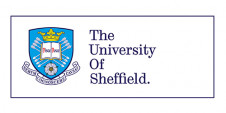Collaboration for Innovation
Can we identify the key factors that influence multi-stakeholder collaboration across the innovation process to overcome barriers and accelerate innovation? How can we encourage the development of responsible innovation?
The transformative aims of providing tailored water for all demand radically innovative new approaches requiring creative and integrative collaborations between Water Companies and four major stakeholders (Supply Chain, Academia, User and Policy). At the moment, stakeholder silos and disciplinary and sectoral boundaries constantly undermine the success of collaborative innovation efforts.
Examples of boundaries faced include: academics producing potentially influential new research but struggling through lack of collaboration with the Water Industry in implementing those ideas on a wide scale, water companies and their supply chain failing to engage domestic and business users to gain a detailed enough understanding on their differing needs and willingness to change, and policy-makers lacking a sufficient understanding of the complexity of the water industry when defining new regulations. Our research theme therefore aims to improve our understanding of the complexities of collaboration and offer strategies and tools for enhancing shared innovation processes through two objectives:
- Identify the factors at different stages of the innovation process that influence the effectiveness of collaboration between stakeholders. The innovation process stages are from challenge identification and analysis, to creative idea generation and idea evaluation, to implementation and finally the maintenance of those innovations. The two methods we will employ to do this are:
- Investigating a set of new case studies of innovation collaborations in the water sector comprised of a sample of the different combinations of stakeholders and their relationships with water companies. The case studies will involve interviews with participants from each side of the stakeholder pairings with respect to identifying critical turning points in past and current collaborations, highlighting challenges faced by potential future scenarios.
- Developing a new theoretical framework of factors influencing collaborations across different types of border and the stages of the innovation process, based on the researches findings.
- Develop, test and implement a new practical model to guide collaborations across the different stages of the innovation process. The model will provide the basis for four types of tools that will be created in the theme:
- Training workshops based on our CLEAR IDEAS methodology to help different stakeholder groups learn about the challenges of collaboration for innovation and provide guidelines for enhanced integration.
- Train-the-trainer workshops to allow practitioners to learn how to run the above workshops
- A software application that will allow stakeholders to collaborate through a technologically-guided process.
- A booklet that outlines the practical guidelines for collaboration, techniques to help put them into practice and offers case studies of innovation successes and failures.
Delivery timescales
2016-2017: Undertake a range of case studies of innovation collaboration across Water Company boundaries (with Users, Academia, Supply Chain, Policy stakeholders) to develop a new theoretical framework for the sector.
2018-2019: Development and testing of training and software tools to enable collaborative innovation
2019-2020: Roll-out of training programmes and software tools to water sector community.
How can people get involved?
People can get involved in two ways:
- We need water companies, suppliers, academics, users, policymakers willing to be interviewed for our case studies
- We need organisations willing to take part in CLEAR IDEAS innovation workshops or trial our software tools.
Academic participants in this theme
Links to other relevant projects/websites
CLEAR IDEAS web portal and online app (free)
The CLEAR IDEAS innovation development model was created by Dr Kamal Birdi in 2005 as a means of translating extensive research on effective innovation into a practical process for organisations. Hundreds of people from private, public and third sectors have been trained in using the CLEAR IDEAS approach and evidence has demonstrated significant impacts from its use. The above website describes the model and also contains a free online app to help you work through the CLEAR IDEAS process to generate innovative solutions to the problems you are facing:
CLEAR IDEAS app for iPad (free)
We have also created a free standalone CLEAR IDEAS app for the iPad which can be downloaded on the above link.
